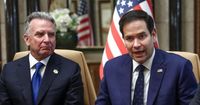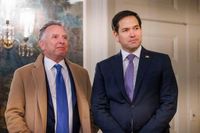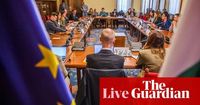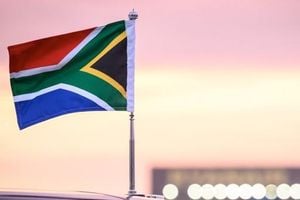U.S. Secretary of State Marco Rubio and Special Envoy Steve Witkoff are set to travel to Paris later this week for high-level meetings aimed at ending the ongoing war in Ukraine. The U.S. State Department announced on April 16, 2025, that the meetings will take place from April 16 to April 18, 2025, during which Rubio and Witkoff will engage with their European counterparts to advance President Donald Trump’s goal of resolving the conflict between Russia and Ukraine.
According to reports from Politico, Witkoff is expected to meet directly with French President Emmanuel Macron, while Rubio will hold separate discussions with French Foreign Minister Jean-Noël Barrot. After the Paris meetings, Rubio is scheduled to depart for Africa, indicating the urgency and significance of the discussions in France.
The timing of the visit follows Witkoff's meeting with Russian President Vladimir Putin in St. Petersburg on April 11, where the two sides reportedly discussed a potential ceasefire in Ukraine. Witkoff later described the talks as "compelling," suggesting that there may be room for negotiation despite the ongoing violence.
In an interview with Fox News on April 14, Witkoff elaborated on the discussions with Putin, indicating that they explored a possible deal centered on the status of what he termed "so-called five territories." These territories are believed to include Crimea, which Russia illegally annexed in 2014, as well as the partially occupied regions of Donetsk, Luhansk, Zaporizhzhia, and Kherson. Witkoff stated, "This peace deal is about these so-called five territories. But there's so much more to it. I think we might be on the verge of something that would be very important for the world at large."
France is currently leading the European initiative for stronger security guarantees for Ukraine. Macron has publicly supported the idea of deploying a "reassurance force" to Ukraine, not for combat, but to assist in training forces, rebuilding infrastructure, and reinforcing stability, particularly along the Dnipro River, which is situated far from the front lines of the conflict. This reassurance force was first proposed by U.K. Prime Minister Keir Starmer in early March and is backed by a coalition of about 30 countries, with six nations expressing readiness to commit troops.
The backdrop for these diplomatic efforts is a series of recent violent incidents in Ukraine, including a devastating missile strike in the city of Sumy on April 13, which resulted in the deaths of at least 35 people. This tragedy underscores the challenges faced in negotiating a ceasefire and achieving lasting peace.
Despite the high-level discussions in Paris, the path to peace remains fraught with difficulties. Witkoff's earlier meetings with Putin have not yet yielded any concrete agreements, and the ongoing military actions by Russia complicate the situation further. The United States and its allies are keenly aware that time is of the essence, as the humanitarian crisis in Ukraine continues to escalate.
As Rubio and Witkoff prepare for their meetings, the international community watches closely, hoping for signs of progress in the negotiations. The stakes are high, not just for Ukraine, but for global stability as well.
In addition to the talks on Ukraine, the visit comes at a time when other significant diplomatic discussions are unfolding. Rare discussions between the U.S. and Iran regarding Tehran's nuclear program were held in Oman, with another round of talks scheduled for April 19. These concurrent diplomatic efforts highlight the complex geopolitical landscape that the U.S. is navigating.
In conclusion, the upcoming meetings in Paris represent a critical juncture in the ongoing efforts to resolve the conflict in Ukraine. With both sides expressing a willingness to explore peace, the outcome of these discussions could have profound implications for the region and beyond. As the world watches, the hope remains that diplomacy will prevail over conflict.






